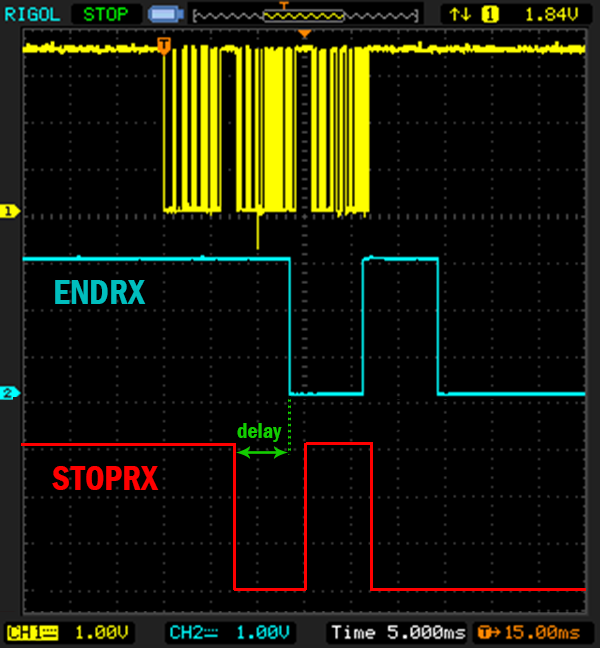Hi there,
I'm issuing a STOPRX at a specific time but I'm noticing that more bytes are being put into the buffer from after the STOPRX was issued.
Is there a way to stop the UARTE on the exact byte and process, and receive all bytes from that point on to a different buffer?
Please advise.
UPDATE
After triggering a STOPRX, the UARTE will hang around for a few more bytes, placing them in the same buffer and then calling ENDRX. This is problematic since these new bytes are part of a different message.

Here you can see that STOPRX is triggered during some small idle times, yet the ENDRX doesn't happen till much later.
This results in ENDRX being called with 11, 6 and 1 bytes read (when it should be 6, 6 and 6 bytes read)


